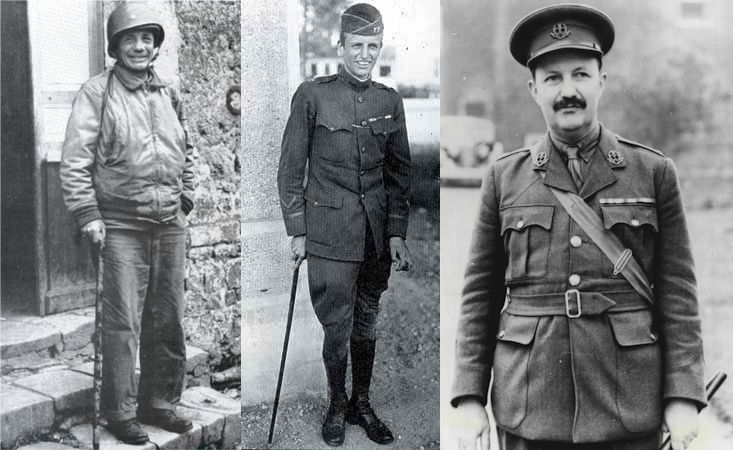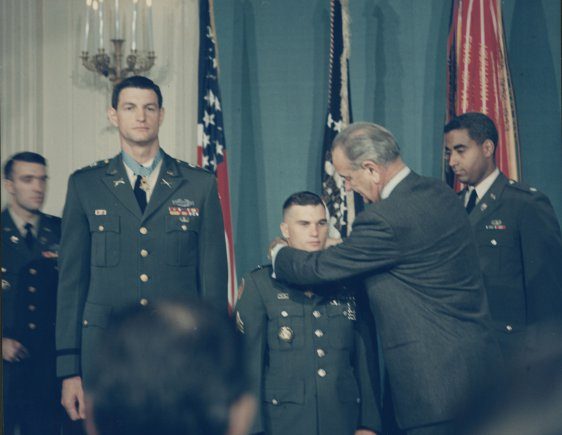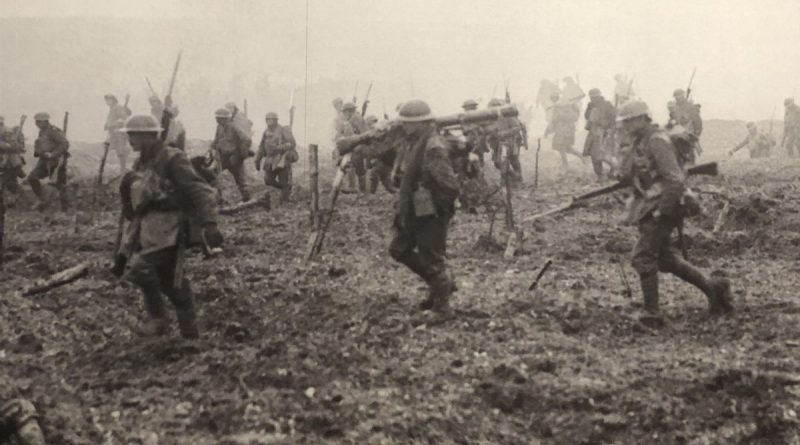November 5 in U.S. military history
1862: Realizing an army led by Gen. George McClellan would never defeat the Confederates, Pres. Abraham Lincoln removes the cautious Army of the Potomac commander, choosing Gen. Ambrose Burnside as his replacement. Two years later (nearly to the day) Lincoln defeats McClellan in the 1864 presidential election. McClellan campaigned as an actively serving general but resigned his commission on election day. Lincoln will win every state except Delaware, Kentucky, and McClellan’s home state of New Jersey.
1915: Lt. Commander Henry Mustin catapults from the USS North Carolina in a Curtiss AB-2 flying boat, becoming the first American to make a catapult launch from a ship underway.
1917: U.S. Army major Theodore Roosevelt Jr. and his younger brother Lt. Archibald Roosevelt — both sons of former Pres. Theodore Roosevelt — lead the first American patrol into “No Man’s Land” (featured image) during World War I. “Archie” will be wounded severely enough to merit a retirement with full disability, only to rejoin the Army during World War II. When an enemy grenade destroys the same knee wounded in the previous world war, Lt. Col. Roosevelt becomes the first person declared 100 percent disabled in two wars.
Theodore Jr. also rejoined the Army during World War II and earned the Medal of Honor while leading his troops at Utah Beach during the Invasion of Normandy. He died one month later of a heart attack. His brother Kermit left basic training and joined the British Army during World War I, transferring back to the U.S. military as a captain when the American Expeditionary Force arrived in Europe. He rejoined the British military during World War II, serving in Finland and Africa before being medically discharged. He would later serve as an Army intelligence officer in Alaska. The youngest Roosevelt son, Quentin, was a pursuit pilot and was shot down over enemy lines, becoming the only son of a U.S. president killed in combat. He and Theodore Jr. are buried side-by-side at the Normandy American Cemetery and Memorial near Colleville-sur-Mer, France.

Meanwhile in the Atlantic, a torpedo fired by a German U-boat sinks the yacht USS Alcedo, which had been escorting a convoy to France. 21 sailors perish as the yacht slips beneath the waves – becoming the first U.S. warship sunk during World War I.
1923: The submarine USS SS-1 (SS-105) launches a Martin MS-1 seaplane, marking the first flight of a submarine-launched aircraft.
1966: When U.S. soldiers are pinned down by the Viet Cong (VC) near the Cambodian border, Capt. Robert F. Foley’s “A” Company rushes to the battle to relieve their embattled sister company. Pvt. 1st Class John F. Baker, Jr. and another soldier take out two enemy bunkers. When his comrade is mortally wounded, Baker spots four enemy snipers and eliminates all of them, then evacuates his fellow soldier. Returning to the front, he leads several attacks on the enemy, killing several VC and silencing additional bunkers. After charging through the jungle with his machine gun to wipe out another bunker, Baker covers his unit’s evacuation. In total, he rescued eight soldiers.
Meanwhile, the fire concentrated on Capt. Robert F. Foley‘s location is so intense that he loses two of his radio operators. Grabbing a machinegun from a wounded soldier, Foley charges forward – alone – to maintain the momentum of the attack and keeps firing until the wounded can be extracted. Once his men rally, he leads attacks against several machine gun positions, personally eliminating three, despite being wounded by an enemy grenade.
For their actions, Baker and Foley are both awarded the Medal of Honor.

1950: Gen. Douglas MacArthur begins a heavy air campaign against North Korean targets, including bridges over the Yalu River, violating orders from the Joint Chiefs of Staff that restricted operations within five miles of North Korea’s border with China.
2009: U.S. Army major Nidal Malik Hassan kills 13 and wounds another 29 soldiers and civilians at Fort Hood, Texas in the deadliest shooting on a U.S. military installation. 14 years later Hassan sits in Fort Leavenworth’s death row, pending several appeals. So far the death penalty has been upheld.
